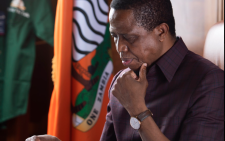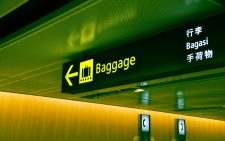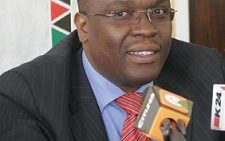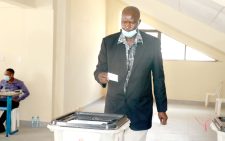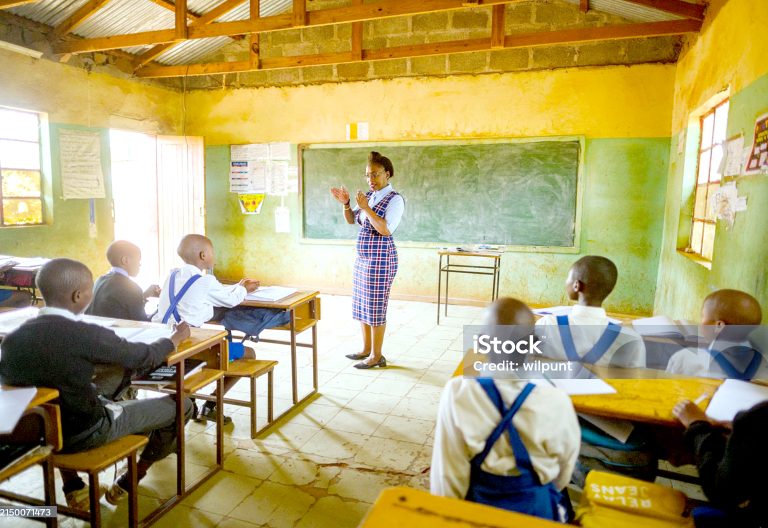UN pushes for more Kenyan officers in the Haiti mission
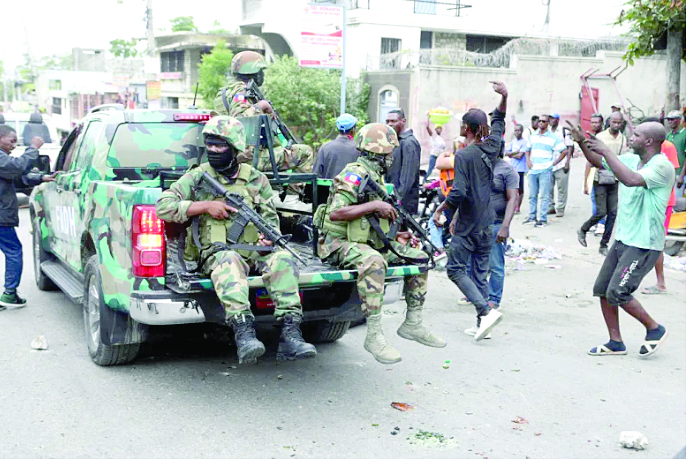
The humanitarian crisis and security in Haiti has reached critical levels and the only viable alternative remaining is increasing support to the Haitian security forces and the Kenya police-led security mission.
The UN Special Representative for Haiti, Maria Isabel Salvador, has said the magnitude of the violence has sown panic among the Haitian population and told the Security Council to step up international support for Haiti, and urged member states to support the 2025 Humanitarian Response Plan.
While briefing the UN Security Council in New York on the situation in Haiti on Monday, Salvador warned that the Haitian government alone could not deal with the crisis.
“I must be very frank, responsible and honest: No amount of effort by the Haitian government will be enough to significantly reduce the intensity and violence of criminal groups,” she said.
The special representative has also commended Kenya’s steadfast leadership and thank all contributing member states.
“Haiti’s humanitarian crisis has reached critical levels. All member states must increase support to Haiti’s security forces, particularly the Multinational Security Support Mission, not as a matter of choice, but of necessity, as no viable alternative remains,” she said.
She added: “We are approaching a point of no return. As gang violence continues to spread to new areas of the country, Haitians experience growing levels of vulnerability and increasing scepticism about the ability of the state to respond to their needs.”
The National Security Advisor to President William Ruto, Amb. Dr Monica Juma has also said an urgent expansion of the MSS personnel is essential in order to deliver the intended impact and meet the legitimate high expectations of the Haitian people.
Haiti’s ambassador Ericq Pierre said Haiti is prepared to discuss and support, as appropriate, any initiatives of its traditional partners aimed at helping rid the country of gangs that terrorise the population.
Salvador further said that since late January, organised criminal groups have launched coordinated attacks to expand territorial control and undermine the state authority.
“They targeted Kenscoff, the last road out of Port-au-Prince not fully under gang control, and advanced simultaneously into Delmas, downtown Port-au-Prince, and Pétion-Ville—areas previously spared—deepening the city’s destabilisation,” she said.
Dismantle institutions
Attacks also spread across the West, Centre, and Artibonite departments, signalling a strategy to stretch national security forces. Most recently, gangs seized Mirebalais. During the attack, over 500 inmates were freed in the fifth prison break in under a year—part of a deliberate effort to entrench dominance, dismantle institutions, and instil fear.
The scale and duration of this violence overwhelmed the Haitian National Police, despite support from the Armed Forces of Haiti and the Multinational Security Support Mission, further obstructing stabilisation.
In February and March alone, 1,086 people were killed and 383 others injured. According to the International Organisation for Migration, over 60,000 people were forcibly displaced in the past two months, adding to the one million already displaced by December 2024.
These numbers are expected to rise.
The scale of the violence has sown panic among Haitians, who fear the total collapse of the state under pressure from criminal groups. Many have organised to protect their neighbourhoods, families, and communities.
In recent days, frustration has driven thousands of citizens to demonstrate to demand more effective measures, while some politicians have exploited this growing insecurity to challenge the ruling power.
National authorities have stepped up efforts, within their means, to strengthen security forces and improve coordination between the police, the Haitian Armed Forces, and the Multinational Security Support Mission.
“On April 14, a revised budget was adopted to bolster the capacities of the police and the military. It is essential that any future measures strengthen security institutions, respecting the rule of law, under civilian authority, and in compliance with human rights standards,” Salvador said.
As the security crisis affects all aspects of life in Haiti, the UN’s presence is also strained. The ongoing isolation of the capital, due to suspended commercial flights since November 2024 and blocked road access, remains the greatest operational challenge.
In response, the United Nations Integrated Office in Haiti (BINUH) and UN agencies have adopted hybrid modalities and reduced their presence in Port-au-Prince to maintain operations and deliver life-saving support.
“However, without sufficient and predictable funding, even a minimal UN presence may become unsustainable, jeopardising our ability to meet mandate priorities,” Salvador warned.
On Sunday, at least three Haitian soldiers were killed in an ambush in Kenscoff.
Haitian authorities said the attack by the gang coalition known as Viv Ansanm happened when the team was on a joint security patrol with local and Kenyan officers.


